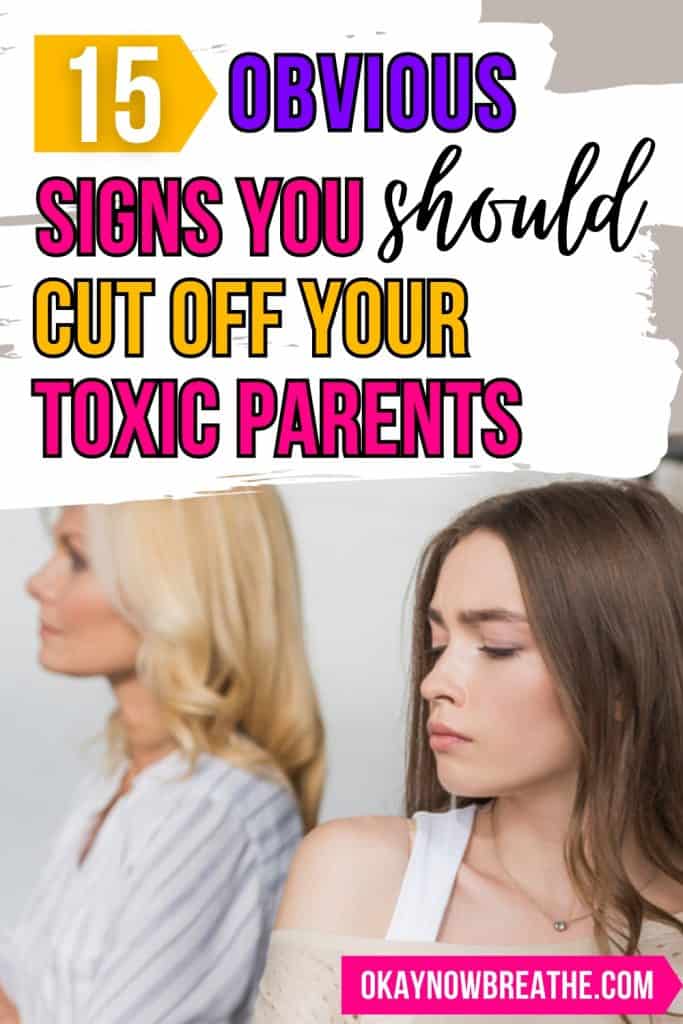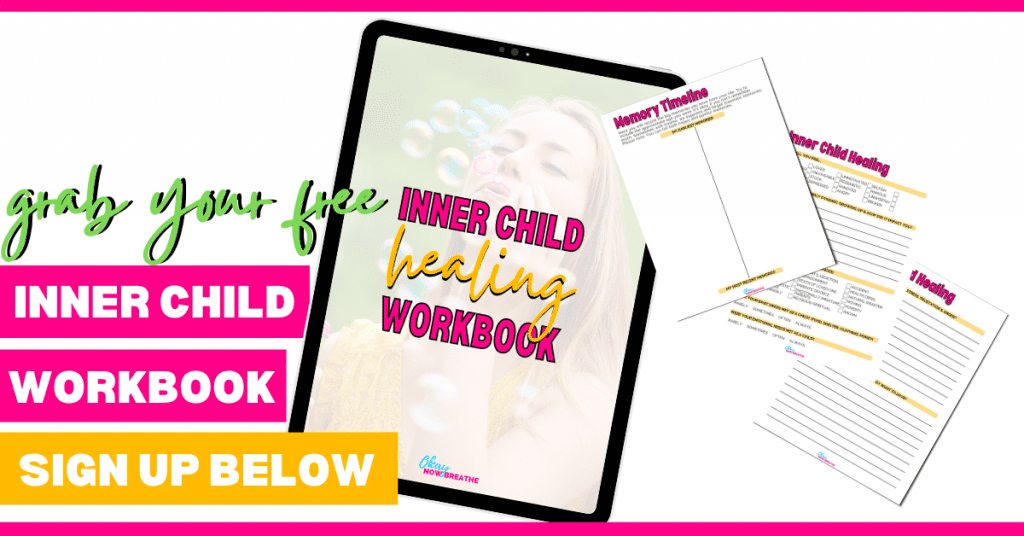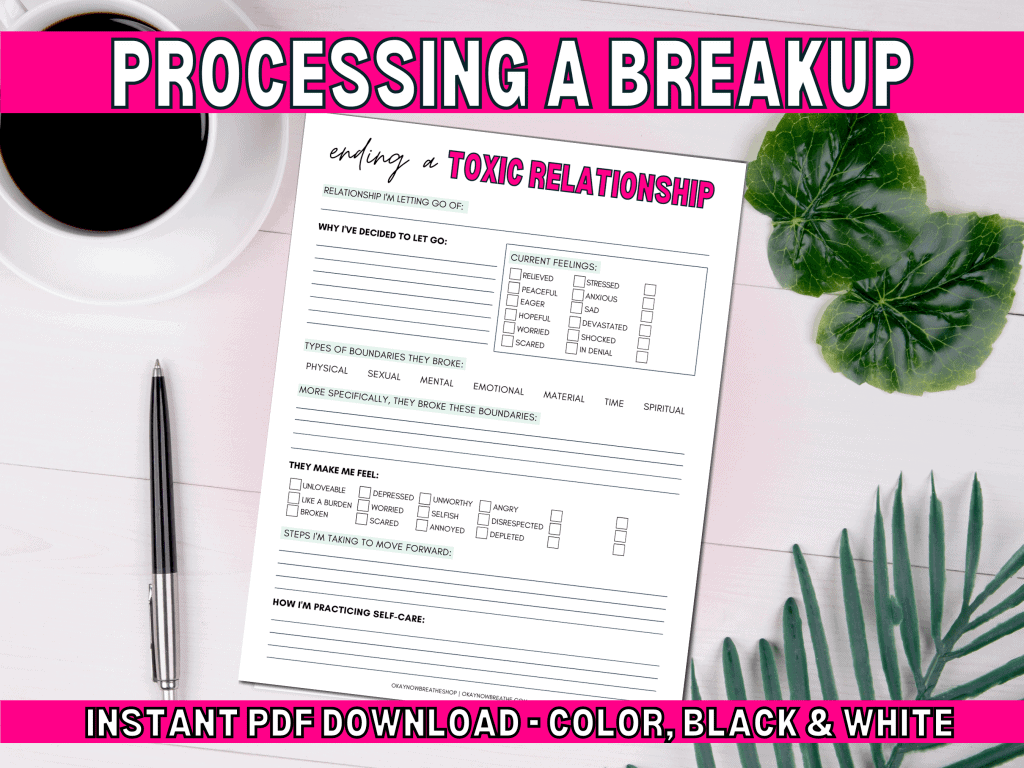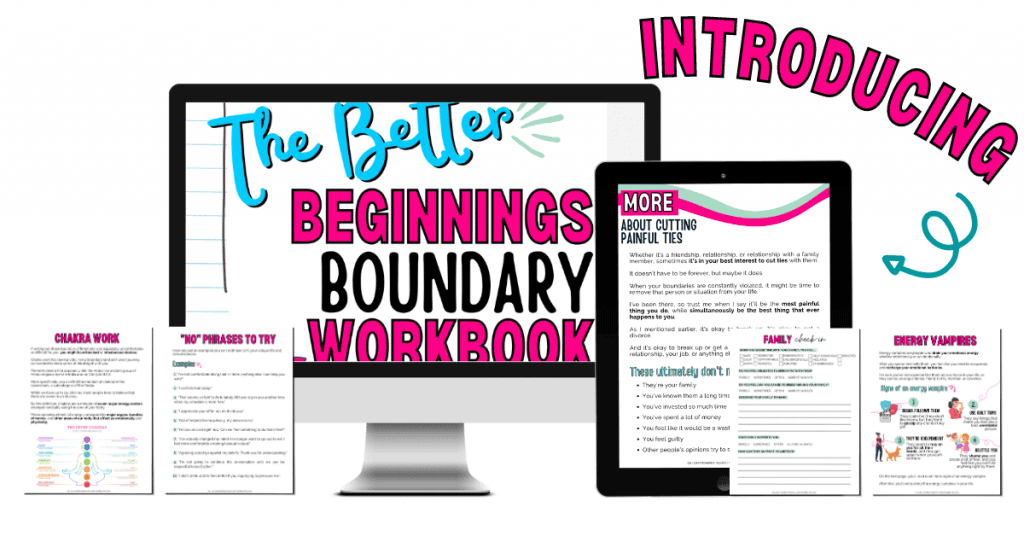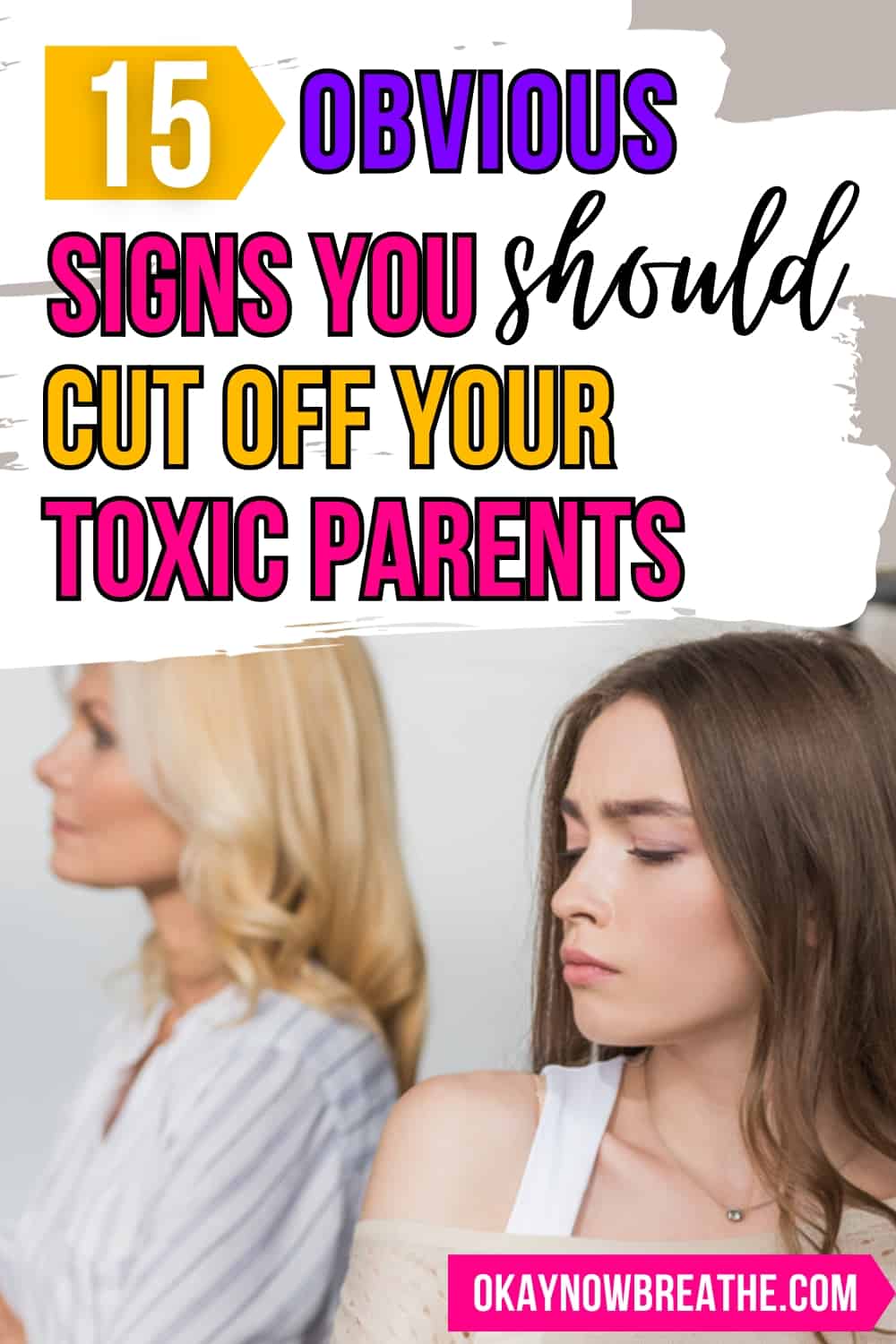
DISCLOSURE: I am not a mental health professional. If you need help finding a mental health care provider, call 1-800-662-HELP (4357) or visit Online Therapy to call, message, or video chat a certified therapist online. This post contains affiliate links. As an Amazon Associate, I earn from qualifying purchases. I may also receive compensation from Online Therapy or other sources if you purchase products or services through the links provided on this page. You can read my full disclaimer.
Cutting off communication with your parents can be absolutely devastating but absolutely freeing at the same time.
But when your mom and dad continue to abuse, neglect, or traumatize you, it’s no wonder you want to end your relationship with them.
What is it called when you cut off your parents?
When someone goes no contact with their parents, it’s often referred to as “parental estrangement”.
It usually takes a lot to cut ties with our parents, and there are typically a lot of underlying causes, which we’ll discuss later on.
While it’s a complex and emotional issue, sometimes it’s best for the adult child’s mental wellbeing.
✨ Speaking of having toxic parents, have you downloaded your free inner child healing workbook yet? 👇
15 Signs You Should Cut Off Your Parents
1. PARENTS DON’T APOLOGIZE
Our mom and dad can unintentionally cause us emotional pain — or even lasting damage.
But when we communicate this hurt, our parents can invalidate, deny, and gaslight like no other.
Reasons parents don’t apologize ⤵️
- Lack of empathy
- Lack of awareness
- They feel attacked
If your parents don’t own up to the problems they’ve caused (or the hurt they continue to commit), then it might be time to reconsider your relationship with them — especially if they’re super defensive and hurtful about it.
More about gaslighting:
👉 50 Gaslighting Quotes (for When You’re Being Emotionally Abused)
2. PARENTS HOLD YOUR CHILDHOOD OVER YOU
To piggyback off your parents being defensive, your parents might hold your childhood over your head.
Maybe you’ve heard, “You don’t know how good you had it!”
But they don’t realize that being financially supportive, putting a roof over your head, and having food on the table are the bare minimum.
(Of course, poverty can make a situation like this difficult for some parents.)
Parents need to be emotionally available and supportive of your unique hobbies, interests, and personality traits.
Love is a human need.
Connection is a human need.
Doing the bare minimum isn’t good enough when it comes to good parenting.
Are your parent toxic?
👉 17 Signs a Parent is Toxic (That are Painfully Relatable)
3. PARENTS PLAY FAVORITES
Some adults blockheadedly can’t understand, but kids aren’t stupid.
(I certainly wasn’t stupid or delusional knowing my mom favored my oldest sister.)
It might be more obvious to you as an adult, but once your eyes are open, you can recognize when your parents pick favorites.
Signs parents play favorites ⤵️
- Don’t enforce rules in a uniform way
- Not all of the children are expected to do chores
- Compare kids to one another
- Spend more time with one child
- Frequently side with one kid over the other
They might favor a sibling over you, and in their eyes, their other child can do no wrong.
But you, on the other hand, are quick to be reprimanded, scolded, and talked down to.
When this is a pattern, it can have devastating consequences on your self-worth and self-esteem.
More about favoritism:
👉 10 Signs Your Parents Play Favorites (and Why it Freaking Sucks)
4. PARENTS BLAST ON SOCIAL MEDIA
Unfortunately, there could be several reasons why some parents talk negatively about their children on social media.
Reasons parents talk bad about their kids on social media ⤵️
- Frustration or anger towards their children’s behavior
- A desire for attention or validation from others
- Lack of understanding about the potential consequences of their actions
When your parents do this, it feels like public humiliation — because that’s exactly what publicly criticizing or shaming is!
This type of toxic behavior damages the parent-child relationship, and it’s crucial for our parents to have open and honest communication with their kids and address any problems in a respectful and constructive way.
5. PARENTS DON’T SHARE THE SAME VALUES
Due to things like a generation gap, cultural differences, and personal experiences, you and your parents probably don’t share the same values on several issues.
Values you might have different than parents ⤵️
- Religious or spiritual beliefs: Your parents may have different beliefs or levels of commitment to a particular religion or spiritual practice.
- Political views: Maybe you oppose on political views, which can lead to disagreements and conflicts.
- Work ethic: Your parents may value hard work and sacrifice, while you prioritize work-life balance.
- Gender roles: Your parents may have traditional gender roles and expectations, but you might have more progressive views on gender equality.
- Social norms: You and your parents might differ on social norms and expectations, such as dating, marriage, and family dynamics.
- Financial priorities: Your parents might prioritize saving and financial stability, while you might prioritize experiences and traveling.
If you don’t communicate openly and respectfully about these issues to find common ground and understanding, your relationship can feel tense and resentful.
6. PARENTS DON’T HAVE THE MORALS
As said, when you don’t see eye-to-eye on important issues, it can put a massive strain on your relationship with your parents.
Different morals you might have than parents ⤵️
- Respect for authority: Your parents may have a strong emphasis on respect for authority figures such as teachers, law enforcement, and elders. You may have a more critical view of authority and the need to question it.
- Personal responsibility: Your parents may emphasize personal responsibility and accountability, while you may have a more collective view of responsibility and the importance of social justice and equity.
- Compassion and empathy: Your parents may have a more traditional view of compassion and empathy, and you may have a more inclusive view of compassion and the importance of empathy for marginalized groups.
- Sexual morality: Your parents may have a more conservative view of sexual morality, while you may have a more liberal view of sexuality and the importance of sexual liberation and autonomy.
Plus, if a parent is racist, homophobic, or transphobic, it is completely understandable to no longer want a relationship with that parent.
7. PARENTS DON’T RESPECT YOUR BOUNDARIES
Parents who disrespect your boundaries over and over after you communicate with them is a telltale sign you should limit your contact with them.
Signs parents disregard boundaries ⤵️
- Ignore your requests to not discuss certain topics or engage in certain behaviors
- Guilt-trip or manipulate you into doing things you’re not comfortable with
- Invade your privacy without your consent
- Make decisions for you without your input
- Dismiss your opinions and feelings
- Criticize you when you try to set boundaries
It’s completely reasonable to want to cut your parents off when they repeatedly cross your boundaries.
Refusing to acknowledge a child’s boundaries or privacy can be harmful and may lead to a lack of trust and respect in the parent-child relationship.
More about boundaries:
👉 How to Set Boundaries with Toxic Family Members (& Gain Back Your Sanity)
8. PARENTS REFUSE TO BELIEVE YOU’RE GROWN
Coming out of the parent-child dynamic can be difficult for both parties to navigate.
But when your parents still treat you like a child no matter how old you get, this controlling dynamic can stifle independence and personal growth.
Signs parents don’t respect you as you age ⤵️
- Don’t give you the independence and autonomy
- Give you unsolicited advice and make decisions for you
- Disregard your opinions or feelings
- Don’t listen to your perspective and instead prioritize their own beliefs or ideas
- Control your actions and monitor your behavior
This parent/adult child dynamic gets even messier when you go on to have your own children, and your parents believe their parenting is the only correct way — which is simply not true.
More about toxic parenting:
👉 107 Toxic Parents Quotes (When Mother and Father Are Abusive AF)
9. PARENTS DON’T ACCEPT ADULT CHILD’S SPOUSE
You can’t choose the family you’re born (or raised) into.
But you can choose your life partner.
When your parent tries to come between your romantic relationship and is jealous of it, it can make you feel like you have to be in the middle.
Signs parents are jealous ⤵️
- Showing resentment towards the child’s significant other
- Criticizing or belittling their child’s partner
- Becoming overly involved in the relationship
- Trying to control or manipulate the relationship
It’s important for parents to support their adult children’s relationships and allow them to make their own decisions.
10. OVERBEARING GRANDPARENTING
If you’re a parent, you deserve to parent your children the way you want to.
When your parents violate this and become overbearing grandparents, it can be incredibly frustrating and demoralizing.
Ways parents can be overbearing grandparents ⤵️
- Interfere with parenting: Your parents may try to interfere with your parenting style, which causes conflicts and undermines your authority.
- Spoil grandchildren: Your parents may try to spoil their grandchildren with excessive gifts or treats, which can create unrealistic expectations and cause issues with you.
- Overstep boundaries: Your parents may overstep boundaries by making decisions about your children’s education, health, or other important matters without consulting you first.
- Ignore parenting preferences: Your parents may ignore your parenting preferences, such as dietary restrictions or screen time limits.
- Criticize parenting choices: Your parents may criticize your parenting choices, which can cause problems and create tension within the family.
While your parents can play an important role in your children’s lives, they should always respect your parenting choices.
11. PARENTS BELITTLE OR INSULT YOU
Nothing hurts quite as much as when a parent puts you down.
Signs parents belittle you ⤵️
- Frequently criticize or mock you
- Make negative comments about your appearance, abilities, or intelligence
- Use sarcasm or passive-aggressiveness when speaking to you
- Use name-calling or derogatory language toward you
- Dismiss your opinions or feelings
These insults cut deep, and they’re more than enough of a reason to cut ties with your parents.
Recovering from toxic shame:
👉 10 Shame Healing Exercises (for Inner Childhood Wounds)
12. PARENTS ARE CONTROLLING
Your mom or dad may have inadvertently shaped you into a people pleaser.
And when all you want is your parents’ approval, it can be difficult to see just how controlling they actually are.
Signs parents are controlling ⤵️
- Monitor your every move and invade your privacy
- Manipulate you through guilt or fear tactics
- Limit your interactions with friends and family
- Use money or other resources to control you
- Refuse to honor your boundaries
Once you recognize how controlling your parents are, you’ll soon realize how incredibly toxic the situation is.
More signs you have controlling parents:
👉 13 Signs of Controlling Parents in Adulthood (That Are Ruining Your Life)
13. PARENTS ARE SELF-CENTERED
Of course, your parents need self-care just like everyone else.
But some parents can take this need for self-care too far and be incredibly self-centered.
Signs parents are self-centered ⤵️
- Consistently putting their own needs before their children’s
- Disregarding their children’s feelings and opinions
- Expecting their children to fulfill their own unmet needs
- Showing little interest in their children’s lives and accomplishments
Having a parent who displays this toxic trait can make you feel worthless and small, and it’s no wonder why you would want to limit contact with them.
Exercises to honor your inner child:
👉 13 Inner Child Healing Exercises (for Your Wounded Younger Self)
14. PARENTS ARE ABUSIVE
If your parent is abusive — or at any point in your life has been abusive — you might be scared of your parents.
Signs parents are physically abusive ⤵️
- Hitting
- Kicking
- Choking
- Throwing and breaking things
Because children often develop fear, anxiety, and anger due to this abuse, you might be afraid to cut ties with your parents.
But it’s more than okay to end the relationship.
Listen to these song recommendations:
👉 40 Child Abuse Songs (When You Had a Bad Childhood)
15. PARENTS STRUGGLE WITH ADDICTION
If your parent struggles with active addiction, it can be indescribably devastating.
And when you have to cope with it, it can take a serious toll on your mental health and emotional wellbeing.
Plus, if your mom or dad refuses treatment for their addiction or mental illness, it can feel like an uphill battle you’ll never win.
As painful as it is to cut ties with a parent with addiction or poor mental health, it’s sometimes something you have to do to look after yourself.
Adult Children Estranged From Parents
Cutting off parents is messy and complicated, but sometimes it’s for the best.
Whether you experience abuse at the hands of your parents, there are unresolved conflicts, or they keep interfering in your life, there are many reasons why adult children may no longer want a relationship with their parents.
At the end of the day, we don’t owe our parents anything.
You have to look after yourself.
💾 Bookmark this page for when you need another sign to cut off your toxic parents.
More inner child healing posts:
- 17 Magical Crystals for Healing Childhood Trauma (and Emotional Pain)
- 101 Healing Inner Child Affirmations (to Reparent Yourself)
- 70 Healing Inner Child Quotes (to Help Overcome Childhood Trauma)
- 40 Child Abuse Songs (When You Had a Bad Childhood)
- 13 Nostalgic Activities to Reconnect with Your Inner Child
- 107 Toxic Parents Quotes (When Mother and Father Are Abusive AF)
- 22 Powerful Inner Child Healing Meditations (Guided and Unguided)
- 23 Heartbreaking Movies About Childhood Trauma (That are Therapeutic)
- 17 Must-Have Healing Gifts for Your Inner Child
- 11 Ways to Heal Childhood Trauma Spiritually (and Awaken Your Inner Child)
- 23 Inner Child Oracle Cards (for Deep Shadow Work)
- 23 Tarot Decks (for Intense Inner Child Work)
Did you know there’s online therapy?
Online Therapy is a complete online therapy toolbox.
Your therapy toolbox includes:
-
- Live video, voice, or text chat session with your therapist
- 8 easy-to-follow sections, including 25 worksheets
- Activity plan, journal, and tests
- Yoga and meditation videos
What I love about Online Therapy is that there are several life-changing options and therapists available, and you don’t even have to leave the comfort of your home.
This means you never need to worry before getting help.
👉 Get 20% off your first month with my exclusive link.

